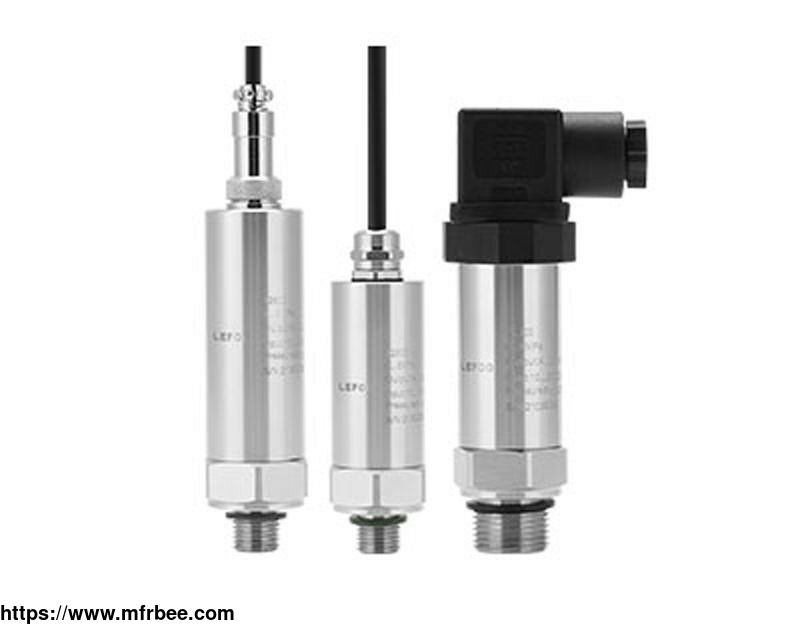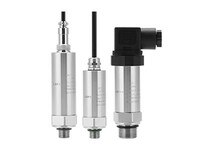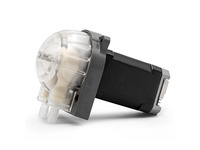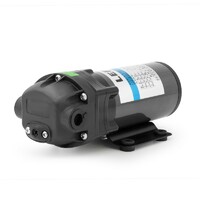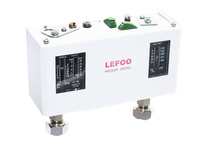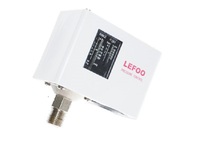HIGH ACCURACY PRESSURE SENSOR
Product Quick Detail
- FOB Price
- USD $150.00 / Piece
- Minimum Order
- 1
- Place Of Origin
- Hangzhou
- Packaging
- N/A
- Delivery
- 14 Days
Specifications
Industrial Pressure Transducers
Pressure Type: Gauge / Absolute
Pressure Range: 0~7MPa / 0~4MPa
Pressure Accuracy: 0.25%FSO / 0.1% FSO
Output: 4~20ma/ 0~5V/ 0~10V RS485
High accuracy pressure transducer applies a silicon strain diaphragm embedded in an oil-filled steel housing and the repeatable & low hysteresis properties of silicon are exploited by the
difference normalization digital amplifier to provide precision optimized measurement results around the ambient temperature range. A four Wheatstone bridge is diffused into a silicon wafer and
then micro-machined to exacting standards to produce a high precision pressure sensor.
APPLICATION OF LEFOO HIGH ACCURACY PRESSURE SENSOR
Through a high precision and long-term stability, these high accuracy pressure transducers and transmitters are particularly suited for applications in flow
or in any facility where high-precision measurement is required. They are used as pressure measuring devices in modern automated industries for higher energy efficiency and longer equipment
lifespan. These characteristics make it a valuable tool in metrology, hydrology, oceanography, industries.
HIGH ACCURACY PRESSURE SENSOR HAS THE APPLICATIONS AS BELOW
Testing technology
Calibration technology
Geoscience/hydrology
High accuracy pressure sensing in original equipment manufacturing (OEMs)
Aerospace / Military
Laboratories and maintenance shops
Leak and burst applications
Wind tunnels
Level monitoring
OEM / Test Bench
Aviation
FACTORS IMPACT ON THE ACCURACY
There are many factors that influence the choice of a sensing device in a certain application. Gauge pressure sensor, absolute or differential, transducer or transmitter, measurement range, fitting
style/size, and absolute maximum ratings such as burst pressure are among the most important.
FACTORS AFFECTING ACCURACY
Making the right choice can then be guided by considering factors that affect accuracy. The major sensor characteristics that influence accuracy are temperature coefficients, temperature
hysteresis, pressure hysteresis, and non-linearity. Applicable temperature coefficients include temperature-related changes to zero offset, sensitivity, and measurement span.
TEMPERATURE ERROR OVER 85°C
The LFT2010 high accuracy pressure differential transducer for a high-temperature application over 85 °C will cause permanent damage to accuracy. The ideal working temperature is within the range
of -10°C to 70°C. For example, there are some common sensors on the market with 0.5% accuracy( not LEFOO products). The 0.5% FS accuracy does not include the permanent temperature error which is an
additional 0.02%X3=0.06% per degree per second.Celsius.The extremely high temperature will ruin the accuracy and the sensor in seconds.
To reduce this additional temperature error and assuming you have the ability to calibrate the sensor when the temperature is between 80 and 90°C, LEFOO pressure control treats the error from room
temp up to 90℃ as a calibration shift since you are only interested in optimizing performance between 80 and 90°C. So the easiest way to reduce the temperature error is to check the output signal
at zero and full-scale pressure when the temperature is at its mid-point 85°C. If you are not able to set full-scale pressure, an even simpler method is to just check the zero shift at 85°C since
most of the thermal error is typically contributed by the thermal zero shift.
CUSTOM HIGH ACCURACY PRESSURE TRANSDUCERS
LEFOO offer ODM and OEM pressure transducers that have excellent long-term stability, linearity, repeatability. LEFOO can also supply custom-configured banks of transducers in calibration test
carts, racks, or benches to fulfill a specific need for flexibility in pressure range and temperature compensation.
The custom systems can contain a variety of components including controlling software, pressure controllers, pressure switch and any customer-specified ancillary equipment necessary.
- Country: China (Mainland)
- Founded Year: 2005
- Address: No.118, Changda Road, Linping Street, Yuhang District, Hangzhou, Zhejiang, 311100 China
- Contact: lefoo
